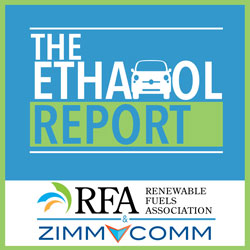 Sen. Heidi Heitkamp (D-ND) is one of several lawmakers on Capitol Hill who received a visit from a team of American Coalition for Ethanol (ACE) members in DC for their annual fly-in, and she was overjoyed to be presented with one of the organization’s special corn kernel cracking display for her office.
Sen. Heidi Heitkamp (D-ND) is one of several lawmakers on Capitol Hill who received a visit from a team of American Coalition for Ethanol (ACE) members in DC for their annual fly-in, and she was overjoyed to be presented with one of the organization’s special corn kernel cracking display for her office.
Sen. Heitkamp is obviously a friend of ethanol, speaking out this week against the idea of a cap on Renewable Identification Number (RIN) prices. “If the administration takes this action, it would undercut our farmers and biofuel producers at a time we should be bolstering our renewable fuel industry – not sabotaging it,” Heitkamp said. “While I’ve long pushed for the year-round sale of E15 to support biofuels, the artificial RIN cap reportedly being considered by the administration could tank biofuel prices and cost North Dakota jobs. We must keep fighting for our rural communities and farmers, and I urge the administration to reject a RIN price cap.”
Listen to the senator explain why a RIN cap is a bad deal:
Interview with Sen. Heidi Heitkamp










